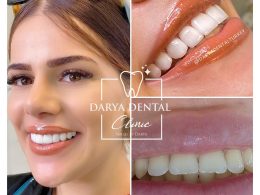There are several natural methods for whitening teeth, including:
- Baking soda and lemon juice: Mixing a small amount of baking soda with lemon juice can form a paste that can be used to brush teeth. The baking soda acts as a mild abrasive to remove surface stains while the acid in the lemon juice helps to break down and remove deeper stains.
- Activated charcoal: Activated charcoal is a natural teeth whitener that can help to absorb surface stains and toxins in the mouth.
- Oil pulling: Oil pulling is an ancient Ayurvedic technique that involves swishing oil around in the mouth for several minutes to help remove plaque and stains.
- Apple cider vinegar: Rinsing your mouth with diluted apple cider vinegar can help remove stains and brighten teeth.
- Hydrogen peroxide: Diluted hydrogen peroxide can be used as a mouthwash to help remove surface stains and brighten teeth.
- Eating crunchy fruits and vegetables: Eating crunchy fruits and vegetables like apples, carrots, and celery can help to scrub teeth clean and remove surface stains.
It is important to note that the effectiveness of these methods can vary and it’s always best to check with a dentist before starting any teeth whitening regimen.
Why do teeth change color
Teeth can change color due to a variety of factors, including:
- Plaque and tartar buildup: If not removed through regular brushing and flossing, plaque and tartar can cause teeth to become yellow or brown.
- Stains from food and drink: Consuming products like coffee, tea, and red wine can lead to staining on the surface of teeth.
- Aging: As we age, the enamel on our teeth can become thinner, revealing the yellowish dentin underneath.
- Trauma: A blow to the mouth can cause teeth to change color.
- Medications: Certain antibiotics and antihistamines can cause tooth discoloration.
- Genetics: Some people are predisposed to having yellow or gray teeth.
- Smoking or using other tobacco products can also cause teeth discoloration.
Does teeth whitening harm teeth?
There is a risk of harm to teeth when whitening them, but it is generally considered to be low. The most common side effects of teeth whitening are sensitivity and irritation of the gums. Some people may experience temporary tooth sensitivity to hot or cold temperatures or discomfort while chewing.
It is important to use teeth whitening products as directed and to be supervised by a dental professional. Overuse of whitening products can cause damage to the enamel of your teeth and make them more sensitive. Using products that are too strong or not formulated for your specific needs can also cause harm.
In addition, people with certain dental conditions such as tooth decay, gum disease or tooth sensitivity should avoid teeth whitening or should consult with a dentist before undergoing whitening treatment.
It is also important to note that teeth whitening does not work for everyone, and the results vary from person to person. Some people may not see any improvement at all, while others may see a significant difference.






